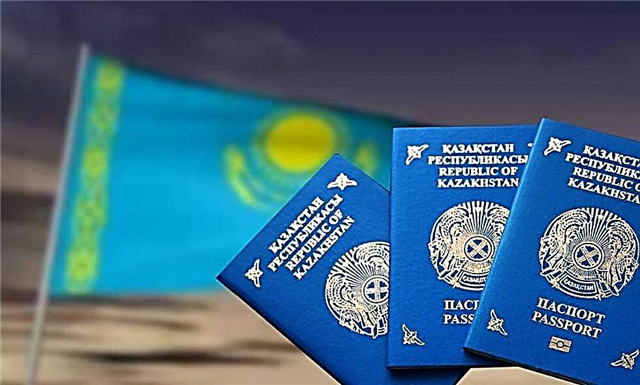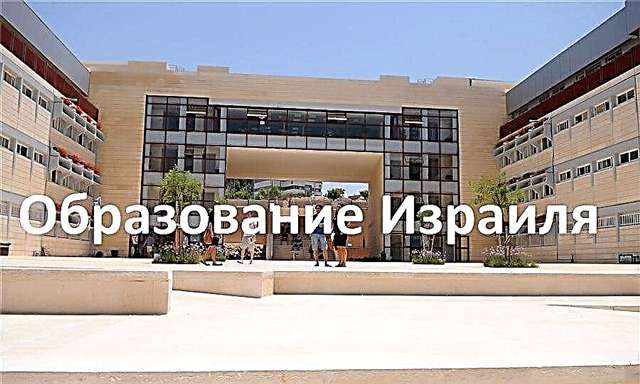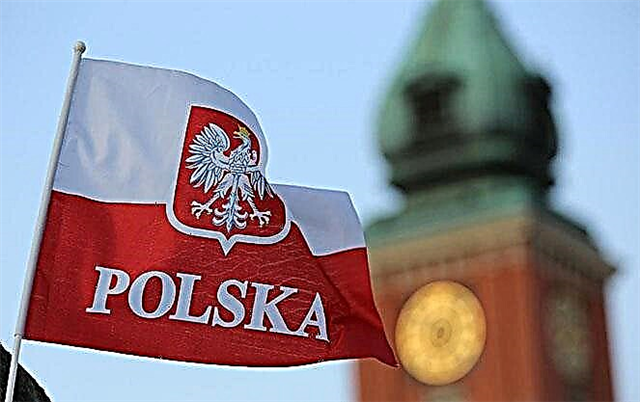Education is of great importance in the life of every person. Therefore, the choice of an educational institution and specialty is, in fact, a choice of fate. Higher education in Poland can provide not only good prospects for further employment, but also the opportunity to live in a European country.

Features of the Polish higher education system
The Polish educational system has some differences compared to the post-Soviet states. So, in Poland, the final stage of obtaining secondary education involves training in a lyceum, which lasts three years, or in a technical school for four years (or two years in a general education lyceum and a vocational school).
The main task (and performance indicator) of lyceums is to increase the level of knowledge of students, ensuring successful passing of the entire complex of final school exams (the so-called Matura). Based on their results, state universities of the country provide free education to the most successful graduates.
Currently, there are four and a half hundred higher educational institutions in the country, of which about 130 are state-owned, the rest are private.
The Bologna Process, in which Poland also participates, provides for the receipt of higher education at two levels: a bachelor's degree (three years, technical specialties - four) and a master's degree (two years). However, there are exceptions: for example, medicine, dentistry, medical diagnostics, pharmaceuticals, veterinary medicine, law, acting, psychology, canon law, preservation and restoration of works of art, photography is studied for four and a half to six years.

It is possible to change the format of training (for example, an indivisible master's degree in Poland). After receiving a master's degree, those who wish can enroll in doctoral studies. Those who defended the dissertation are awarded the degree of Doctor of Philosophy (PhD). He is eligible for a habilitation procedure (another defense of a doctoral dissertation). Those who pass this procedure are awarded the degree of Doctor Habilitat (the highest academic qualification, which gives the right to take the position of a professor at a university).
Most universities offer both Polish and English as the language of instruction (in some educational institutions, instruction is conducted in Russian, which is very convenient for Russian and Russian-speaking students). Given the wide variety of specialties offered and not too much difficulty in mastering Polish as one of the Slavic languages, it makes sense for Russians, Ukrainians and Belarusians to study it in advance using the services of specialized courses in their country or in Poland. A small nuance: English and Russian as the languages of instruction will cost about twice as much as Polish.
Which university and study program is better to choose
The Polish "Law on Higher Education" dated 18.03.11 distinguishes between different types of higher education institutions. According to their legal status, universities are divided into state and non-state, according to the presence / absence of the right to award a doctoral degree - into academic and professional, respectively.
Academic universities are divided into the following types:
- Classical university
- Technical University
- Profile university
- Polytechnic
- Academy.
A classical university has the right to award a doctoral degree in at least ten disciplines, including two or more in the humanities; mathematical-physical, natural and technical; biological and chemical, medico-pharmaceutical and agricultural.
The Technical University has the right to award doctoral degrees in no less than ten disciplines, including more than six technical ones.
The profile university has the right to award a doctoral degree in at least six disciplines, including more than four profile ones for this university.
The Polytechnic has the right to award doctoral degrees in at least six disciplines, including more than four technical ones.
The Academy has the right to award doctoral degrees in at least two disciplines.
The listed higher education institutions are guided by the same standards in the educational process and teaching, and the diplomas issued by them are recognized in the EU countries and most other states.
The largest number of universities is located in Warsaw, Krakow, Lublin, Poznan, Wroclaw. The most popular among applicants are universities such as Jagiellonian, Varshavsky, them. Maria Curie-Sklodowska, them. Casimir the Great, Wroclaw.
According to the QS World University world ranking, leading Polish universities teach and train specialists at a high level in such areas as linguistics, neophilology, mathematics, political science and international relations, electrical and electronics, agriculture and forestry and a number of others.
Often, Polish universities offer programs that provide a double degree (that is, a second higher education on the basis of cooperation with foreign educational institutions), when a graduate is awarded diplomas from Polish (at the place of study) and foreign universities.
What you need to enter a Polish university
Each educational institution independently determines by what rules to admit applicants: according to the results of entrance exams, using the rating procedure (according to the average marks of the certificate) or simply everyone (the practice of private colleges).

For admission, you must prepare and submit a package of the following documents:
- birth certificate (photocopy);
- national passport (photocopy of pages 1, 2, 11);
- passport (photocopy);
- originals of the secondary education certificate and supplements to it;
- original medical certificate according to f.086-U;
- two photos 35x45 mm (80% of the face - to obtain a visa);
- 5-6 photos (sizes - according to the requirements of the university) with the first and last name written in Latin letters, as well as an electronic version of the photo;
- when studying in Polish - a B1 level certificate, in English - B2 level.
In case of admission to a master's program or obtaining a second higher education, it is necessary to present a bachelor's (master's) diploma and the original annex to it.
How much does it cost to study in Poland
The cost of training in Polish universities in most cases is quite comparable to the prices in educational institutions in the post-Soviet space.
Tuition fees are usually paid once or twice a year; often a one-time contribution is also required to meet the needs of the student (writing materials, sometimes a form, etc.).
We will also mention the Polish health insurance, which is mandatory when opening a student visa (with coverage of about 30 euros / year).
Here are the data on the average tuition fees per year (in Polish) for some of the country's popular universities:
| Name | type of ownership | currency unit | amount (thousand) |
|---|---|---|---|
| Warsaw | |||
| Polytechnic | state | Euro | 2-4 |
| The university | - ÷ - | - ÷ - | 3,4-15 |
| Academy of Arts | - ÷ - | zloty | 7,65-9 |
| Medical University | - ÷ - | Euro | 3,3-15 |
| Main commercial school | - ÷ - | - ÷ - | 3,8 |
| Military Technical Academy | - ÷ - | - ÷ - | 3,5-4,3 |
| Lazarski University | non-state | zloty | 7 |
| Cardinal Stephen Vyshinsky University | state | Euro | 2,2 |
| Lublin and the region | |||
| Maria Curie-Sklodowska University | - ÷ - | - ÷ - | 2 |
| John Paul II Catholic University | non-state | - ÷ - | 2 |
| Polytechnic | state | - ÷ - | 2 |
| Medical University | - ÷ - | - ÷ - | 9,9-11,6 |
| Graduate School of Business and Administration (Lukov) | non-state | zloty | 1,9 |
| Higher School of Social and Natural Sciences named after Vincent Paul | - ÷ - | - ÷ - | 1,7-2,7 |
| Gdynia | |||
| Graduate School of Administration and Business named after Evgeniusz Kwiatkowski | - ÷ - | - ÷ - | 4,8 |
| Bialystok | |||
| The university | state | Euro. | 2 |
| Polytechnic | - ÷ - | - ÷ - | 2-3 |
| Medical University | - ÷ - | - ÷ - | 1,5-7 |
| Graduate School of Public Administration | non-state | zloty | 3,5 |
| Graduate School of Finance and Management | - ÷ - | - ÷ - | 5,5 |
| Higher School of Economics | - ÷ - | Euro | 0,8-1 |
It should be noted that it is cheaper for a foreigner to study at an educational institution of a non-state form of ownership.
Of course, this sample included less than five percent of the total number of Polish universities. At the same time, in each educational institution, along with inexpensive education, "fashionable" and, consequently, more expensive specialties coexist, therefore, in search of answers to the questions that arise, one has to visit the websites of specific educational institutions.
What scholarships and grants are provided in Poland
The scholarship can be defined as a reward for successful studies. In different educational institutions, the order and purpose of their appointment (scientific, sports, social and others) is different. Depending on the program, their number varies between 5-25 items.
In addition, some universities provide financial assistance to students in need or reward for certain achievements.
Scholarships are awarded for good academic performance and active participation in the sports, cultural, scientific and political life of the university; social - with a documented low (inferior to the subsistence level) security of the student's family (before the start of the academic year).
The scholarship for the disabled is granted on the basis of relevant medical documents; rector's office - for the best students whose academic performance exceeds a certain level. Moreover, the latter can be obtained following the results of at least one semester of study. It is a partial or full exemption from tuition fees (a kind of offset).
Mention should also be made of various funds and scholarship programs (level - city, country, EU) that support the scientific and cultural activities of student youth.
A grant, unlike a scholarship, can compensate not only the cost of training, but also part of other expenses. It can be issued, for example, by the Ministry of Education; a company planning to hire a specific student; state funds, individual universities or city authorities.
Living conditions for students while studying in Poland
Students enrolled in a Polish educational institution may be provided with places in a hostel; in case of their shortage or absence, it is possible to rent a bed in a hostel of another university or a room in a private residential sector.
Dorm rooms are designed for two or three residents, usually equipped with the necessary furniture, there is access to the Internet. Accommodation in them costs at least 300-350 zlotys / month; if the room is single, its cost will range from PLN 500 / month in a small town like Bialystok to PLN 800 and more in Warsaw. Of course, older hostels are less comfortable to live in.
Living in an apartment is more comfortable, but also more expensive. For example, the most expensive rent is in the capital (1400-1700 PLN / month), in a big city (Poznan, Krakow) - 1200, in a small one (for example, Lodz) - 920. Of course, renting a room will require lower costs.
The level of food prices in Poland is quite comparable with the post-Soviet countries, but noticeably lower than in the EU member states.
It is more profitable to shop in malls and supermarkets with liberal prices: Biedronka, Kaufland, Aldi, Auchan, Carefur, TESCO, Czerwona Torebka.
Average food prices (PLN):
| Name | unit of measurement | Price |
|---|---|---|
| Juices | liter | 3 |
| Tea | 50 sachets | 5 |
| Coffee | 0.5KG | 11-17 |
| Bread | kg | 2-3 |
| Butter | 200 g | 4 |
| Milk 3.2% | liter | 2-3 |
| Yogurt | 150 g | 1,25 |
| Cheese | kg | 20 |
| Eggs | ten | 4,7 |
| Flour | kg | 1,9 |
| Rice | 400 g | 3 |
| Pasta | - ÷ - | 2,8 |
| Vegetable oil | liter | 5 |
| Sugar | kg | 2,5 |
| Salt | - ÷ - | 1 |
| Chocolate | 100 g | 2-3 |
| Minced meat | kg | 12 |
| Chicken fillet | - ÷ - | 15 |
| Pork (tenderloin) | - ÷ - | 22 |
| Sausage | - ÷ - | 12-19 |
| Smoked meats | - ÷ - | 20-30 |
| Canned meat | 1 can | 3-5 |
| Potato | kg | 1,3 |
| Carrot | - ÷ - | 1,6 |
| Tomatoes | - ÷ - | 5 |
| Cucumbers | - ÷ - | 4 |
| Apples | - ÷ - | 2 |
| Bananas | - ÷ - | 7,5 |
| Lemons, oranges | - ÷ - | 7,5 |
| Beer | 0,5 l | 2,5 |
| Cigarettes | pack | 7-13 |
The cost of a complex lunch in a cafe is about 15 zlotys, breakfast / dinner will cost a quarter less.
In large cities, public transport services (well-developed and functioning according to the schedule) are indispensable. The timetable can be found at the stops.
Unusual for many will be the variety of tickets: half-hour action, 75-minute, daily allowance, "weekend" (from Friday evening to Monday morning), single and reusable and others.
The price of a standard ticket in the capital reaches 4.8 zlotys, in Lublin - half the price. Warsaw monthly subscription will cost 110 zlotys, in the provinces - cheaper; the presence of a student card will halve this price.
In general, the cost of food, accommodation, and other expenses for a student in the capital can be estimated at 300-350 euros per month, in large and medium-sized cities - about a third cheaper.
Can students work while studying in Poland
Based on the order of the Minister of Labor and Social Policy of the Republic of Poland dated 04.21.15, the presence of a student visa (for full-time studies) or Karty pobytu gives the right to employment (there are no restrictions).
In the case of studying in a correspondence department, staying in Poland on the basis of a student exchange program or cultural exchange, an invitation from a local employer and a work permit are required.
Since the work of students is not subject to taxes, they may earn even slightly more than other workers, and the employer has an incentive to hire them; however, it is more difficult to get a job without knowing the Polish language.
Students can get a part-time job or a first job thanks to the information from the career department (available in almost all universities), but it is advisable to start working at the end of the first year, after adapting to new living conditions.
In large cities, jobs and summer internships, even in another European country, can be found at the student job fair in the spring / fall.
Most often, this is work in call centers, as an assistant to a seller or bartender, tutoring, work in stores (laying out goods or in a warehouse), nanny, waiter at McDonald’s, etc.
Job prospects after graduation in Poland
When planning your studies in Poland, it is useful to assess the prospects for possible immigration even before you start. Since the presentation of a diploma after graduation from a Polish university means obtaining a temporary residence permit in order to find a job, this makes it possible, after some time, to obtain a permanent residence permit, and in the future, obtain citizenship.
Add to this the possibility of free movement within the EU and the official right to work in any of its member countries.

During their studies, many students use the opportunity to undergo educational practice in Poland, working in their specialty from the second or third year, thereby increasing their chances of getting the intended job; This process is greatly facilitated by the presence of Polish roots.
IT specialists, doctors, engineers, designers and architects are extremely in demand in the country. The specialists with unique knowledge / technologies, specialists in agriculture and agribusiness are very “valuable”.
To open your own business, it is useful to have a diploma in psychology, cosmetology, physiotherapy, tourism, and restaurant business.
Knowledge of Polish and English significantly increases the value of the applicant (Polish educational institutions provide such an opportunity), and in addition to them - German or French. At the same time, knowledge of hieroglyphic languages (Chinese, Japanese) allows you to choose a job to your liking.
Graduates of the humanities (sociologists, political scientists, philosophers, philologists, journalists, managers) experience certain difficulties in finding a job, but the authority of the university plays a role here.
Of course, there is the possibility of building a scientific career: doctoral studies with further thesis defense.
In any case, the prospects for employment with a diploma from a Polish university - at home or abroad - exceed ninety percent.
Conclusion
The higher education system in Poland includes public and private higher education institutions, most often called universities, academies and / or higher schools. The rules for admission of applicants are determined by each university independently.
Since Poland is a participant in the Bologna process, higher education is divided into two stages - bachelor's and master's degrees. After receiving a bachelor's degree, students can continue their education at any university in Europe. Polish diplomas are recognized by all countries of the Bologna system.
Tuition can be conducted in both Polish and English, but tuition in English will be paid. At the same time, education in Poland, in comparison with universities in other European countries, is easier and less expensive both for the Poles themselves and for citizens of other countries.
We hope that the information presented in this article will help you decide on such an issue as obtaining a competitive higher education in another country.











